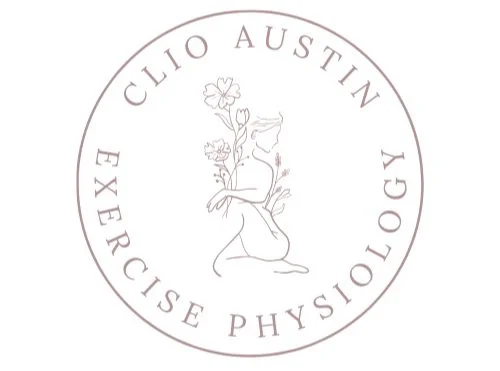What is an Exercise Physiologist?
An Accredited Exercise Physiologist (AEP) in Australia is a university-qualified allied health professional who specialises in designing, delivering, and evaluating safe and effective exercise interventions. These professionals are equipped with the knowledge, skills, and competencies to help individuals with a range of medical conditions, injuries, or disabilities.
Areas of Expertise Include:
Cardiovascular and heart disease
Metabolic disease such as diabetes and obesity.
Neurological
Musculoskeletal complaints and injuries
Cancers
Kidney
Respiratory / Pulmonary
Mental Health
Autoimmune conditions
Women's and Men's Health
AEPs use evidence-based practices to improve their clients' clinical status, ensuring that exercise interventions are tailored to the individual's needs and health conditions.
To become an exercise physiologist in Australia, one must obtain a university degree in Exercise Physiology or a related field. This educational background ensures that AEPs are well-prepared to handle the diverse needs of their clients and provide high-quality care.
Exercise physiologists play a crucial role in the healthcare system, offering specialised exercise interventions to improve the health and quality of life for individuals with various medical conditions. Their expertise spans multiple pathology domains, making them invaluable in both preventive and rehabilitative health care.
Why See a Women's Health Exercise Physiologist?
Seeing a women's health exercise physiologist can be beneficial for a variety of reasons. If you are having trouble returning to exercise due to a medical condition or injury, these specialised professionals can help you safely resume physical activity. They provide guidance on navigating perinatal exercise, ensuring that you and your baby stay healthy throughout the pregnancy and beyond. Additionally, if you have recently been diagnosed with diabetes and your GP advises weight loss, a women's health exercise physiologist can create a tailored exercise plan to help manage your condition effectively.
For individuals struggling with endometriosis, these experts can develop exercise routines that won't exacerbate symptoms, allowing you to stay active without increasing discomfort. If you're over 35 and want to prepare your body for the hormonal changes of perimenopause, a women's health exercise physiologist can offer strategies to maintain your health and well-being. Post-menopausal women aiming to improve bone density and muscle mass for enhanced longevity can also benefit greatly from their expertise.
Another reason you might specifically want to see a women's health AEP is, if you have pelvic organ prolapse and wish to stay fit and active, an exercise physiologist specialising in women's health can help you return to functional and enjoyable activities this condition. They can ensure you remain capable of doing the activities you love without triggering symptoms. These tailored exercise interventions support your specific health needs, fostering long-term physical and mental well-being.
AEPs also provide invaluable support before and after breast cancer surgery and hysterectomies. These medical procedures can have profound physical and psychological impacts, and tailored exercise interventions can significantly aid in recovery and well-being.
If you want to know more about how an Women's Health AEP can support you with your condition, please DM me. I would be happy to connect with you for a discovery call to see how I can support you. Whether you're managing a chronic condition, looking to improve your overall health, or navigating a specific life stage, I am confident I can provide expert guidance and tailored exercise interventions to help you achieve your health and wellness goals.
Before Surgery:
Exercise physiologists can develop prehabilitation programs designed to prepare the body for the upcoming surgery. These programs focus on improving cardiovascular fitness, enhancing muscle strength, and boosting overall endurance, making the recovery process more manageable. For breast cancer surgeries, exercises that promote shoulder mobility and upper body strength are important, as they can mitigate post-operative stiffness and increase the range of motion. Similarly, preparing for a hysterectomy involves exercises that strengthen the core and pelvic floor muscles, which are crucial for maintaining physical function.
After Surgery:
Post-operatively, AEPs guide patients through carefully structured rehabilitation programs. After breast cancer surgery, these professionals help manage lymphedema, enhance mobility, and restore strength through gentle, progressive exercises. For those who have undergone a hysterectomy, exercise physiologists can design routines that focus on pelvic floor rehabilitation, core stability, and overall physical conditioning. These interventions not only assist in physical recovery but also contribute to mental health by promoting a sense of agency and progress.
Why This Support is Crucial:
The journey through breast cancer treatment or a hysterectomy is challenging, and specialised exercise interventions play a critical role in improving outcomes. Engaging in guided physical activity helps manage pain, reduce fatigue, and mitigate the risk of secondary health issues such as cardiovascular disease, osteoporosis, and weight gain. Additionally, exercise has been shown to improve mood, reduce anxiety, and enhance overall quality of life, which is vital during the recovery process. By providing comprehensive support tailored to individual needs, exercise physiologists empower patients to regain their strength, confidence, and quality of life post-surgery.
The support provided by a women's health exercise physiologist is invaluable for those navigating various health challenges, especially pre- and post-surgery. Their tailored exercise interventions not only help in recovery but also improve overall well-being and quality of life. I encourage you to take the next step in your health journey by booking a consultation. Together, we can create a personalised plan that aligns with your unique needs and goals, ensuring you receive the support necessary for optimal health and recovery. Don't hesitate to reach out—I'm here to help you every step of the way!
